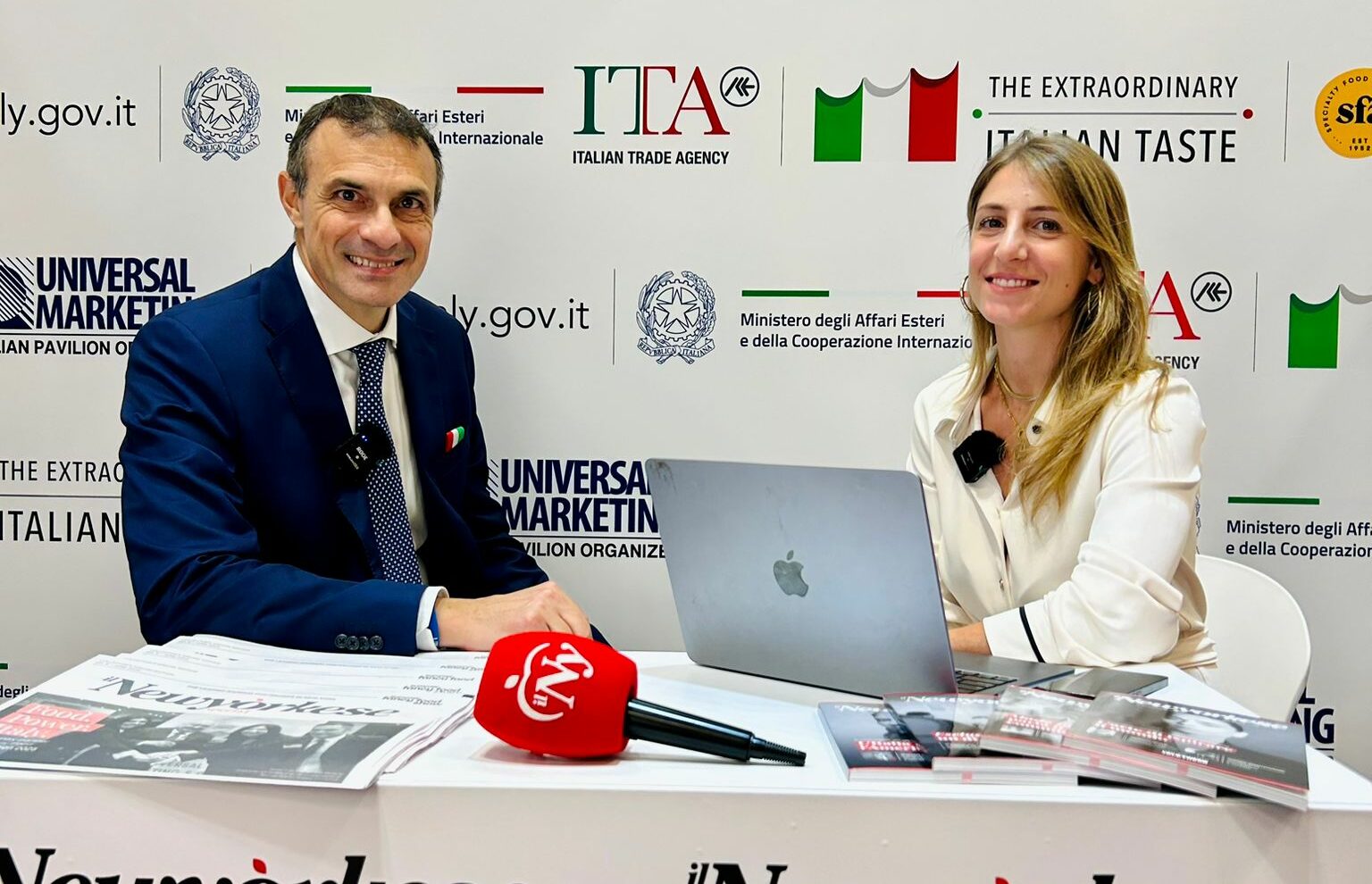Italy continues to play a leading role in many sectors in the U.S., especially in the food industry. In fact, we are also here to support the candidacy of Italian cuisine as an Intangible Cultural Heritage of UNESCO. We discussed this and other strategic topics aimed at further strengthening our country’s presence in the United States with Fabrizio Di Michele, Consul General of Italy in New York.
What is the role of the institutions, and how can they support Italian companies in the United States, particularly in New York?
Italian institutions—starting with the diplomatic and consular network under the Embassy in Washington, including all consulates general, as well as the Italian Trade Agency and chambers of commerce—are actively engaged in supporting exports, businesses, and their entry into the American market.
When it comes to food and wine, Italy speaks for itself. Made in Italy is in high demand, and this allows us to achieve strong— and growing—export numbers, while also being recognized for quality. This explains why Italy is, for the second consecutive time, the leading country at the Fancy Food Show. It also explains why, historically, our pavilion is the largest, with the highest number of companies, booths, and products.
Support is also crucial on the trade negotiation front, especially regarding tariffs, which is currently one of the main concerns for businesses—alongside the uncertainty we’ve been experiencing for several months. Our approach is to stay calm and optimistic because negotiations between the EU and the U.S. will likely lead to a balanced, fair, and sustainable agreement. This is not only in the interest of Italian companies but also of the U.S. itself. Italian products exported here create value in the American market—there’s a strong multiplier effect from importers to distribution.
We must stay optimistic about the issue of tariffs. Like in all negotiations, there are tensions and difficult moments, but the EU, with the support of its member states, also has leverage. The goal is to reach solutions that are satisfactory for all parties.
In recent years, what initiatives has the Consulate undertaken to strengthen commercial relations with the U.S., especially in the agri-food sector?
It’s a sector that practically sells itself—we carry out many activities with the Italian Trade Agency, such as the Italian Cuisine Week, and we take part in various initiatives and events. The food industry is experiencing steady and consistent growth. That’s why we’re putting more effort into other sectors that, despite being excellent, struggle more in terms of perception—like mechanical engineering and pharmaceuticals, which represent great value and are leading-edge.
Looking to the future, what are the Consulate’s priorities to support Italian businesses aiming to enter the American market?
Methodologically, our goal is to further strengthen collaboration with other institutions, starting with the Italian Trade Agency, which works closely with the Ministry of Foreign Affairs, the Commercial Office of the Embassy, and the Chamber of Commerce. As for specific initiatives, one sector where food is more involved than one might think—and which has enormous potential—is innovation. After Silicon Valley, New York is the world’s leading ecosystem in terms of talent, startups, universities, and research centers. There is huge untapped potential here, and it is one of our top priorities. Looking ahead to next year, we will also focus heavily on biotech.
What does it mean for a brand to be here today, participating in an event like the Fancy Food Show?
Everyone wants to be at this fair—and yes, it’s important to be here—but it’s not just about showing up. In just a few days, many economic and strategic opportunities arise, especially for small, lesser-known, niche businesses that offer extremely high-quality products.

